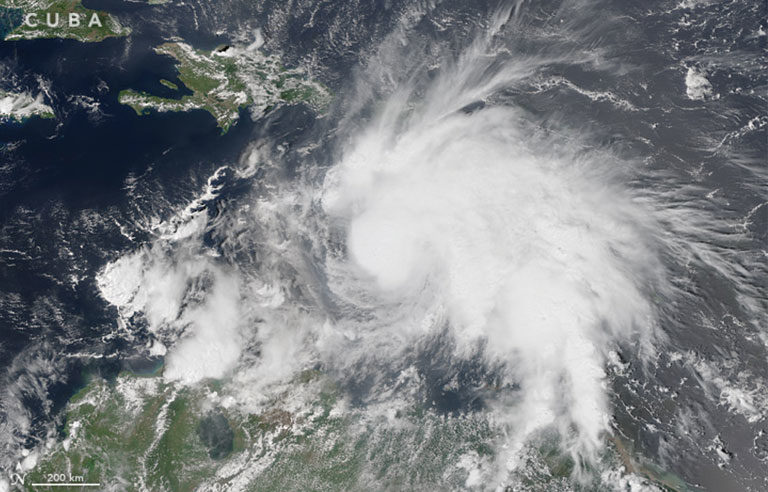EPA to chemical facilities: Get ready for hurricane season

Photo: NASA/Earth Observatory
Dallas — Chemical facility operators along the Gulf Coast should take steps to actively prevent releases during hurricanes or other hazardous weather events, the Environmental Protection Agency says.
Recently published guidance from EPA reminds facility operators, especially those in Texas and Louisiana, of their federal obligation to minimize chemical releases that occur, as well as promptly report releases and/or oil spills/discharges.
According to the National Oceanic and Atmospheric Administration, hurricane season lasts from June 1 through Nov. 30. EPA says hurricanes and tropical storms “are predictable and usually allow facilities to prepare for potential impacts.”
Facility operators should:
- Review procedures for shutting down processes and securing facilities appropriately, especially storage of hazardous chemicals.
- Review updated state and federal guidelines for flooding preparedness.
- Confirm that workers are familiar with requirements and procedures to contact the National Response Center – (800) 424-8802 – in the event of a spill or release.
- Review local response contacts, such as local emergency planning committees and state emergency response commissions.
“As the climate crisis increases the number and intensity of storms, communities living near industrial facilities on the Gulf Coast rely on the owners and operators to prepare for chemical releases, spills and other incidents that could occur during severe weather,” Earthea Nance, administrator of EPA’s South Central Region, said in a press release.
Post a comment to this article
Safety+Health welcomes comments that promote respectful dialogue. Please stay on topic. Comments that contain personal attacks, profanity or abusive language – or those aggressively promoting products or services – will be removed. We reserve the right to determine which comments violate our comment policy. (Anonymous comments are welcome; merely skip the “name” field in the comment box. An email address is required but will not be included with your comment.)

